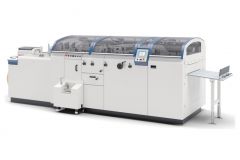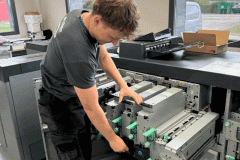Finnish-Swedish paper group Stora Enso launched a survey of 2,400 book readers and listeners in the U.K., France, Germany and the U.S. last spring to determine their preferred reading medium. With the print book market enjoying a boom during the pandemic, the goal of the study was to determine if that would continue in 2022.
Good news! 65% of those surveyed prefer to hold a book in their hands and turn the pages. Electronic books get 21% of the votes. 14% of people prefer audio books.
"These results confirmed our expectations that the print book market will remain buoyant, which is good news for our printing and publishing customers, says Jonathan Bakewell, director of the Office and Book Papers segment at Stora Enso . But the results were surprising in the youngest group (16-24 year olds), where 70 percent of those surveyed said they preferred printed books on paper to their electronic counterparts."

Ãeuros each format its use
The study shows that each book format is adapted to a place and a time. For example, a printed book is best read on a sofa at home, while an e-book or audio book is lighter and more practical and is the ideal companion for a trip. Few of the people interviewed use only one format.
The printed book, a circular and renewable product
42% of readers say they like to keep their books after reading them, 26% lend or give them away, 26% sell them and only 5% recycle or throw them away.
The expected zero carbon
Carbon neutrality of printed books is a priority for 61% of readers surveyed.
70% of young people indicate they are willing to pay more (5.7% of retail price on average) for carbon neutral books.
Many would like to purchase from a carbon-neutral or carbon-offset supplier.
"These discoveries, among many others, are good conversation starters with our printing and publishing customers." says Jonathan Bakewell who continues "as we begin to understand, as an industry, how best to meet the demand for carbon neutrality."










